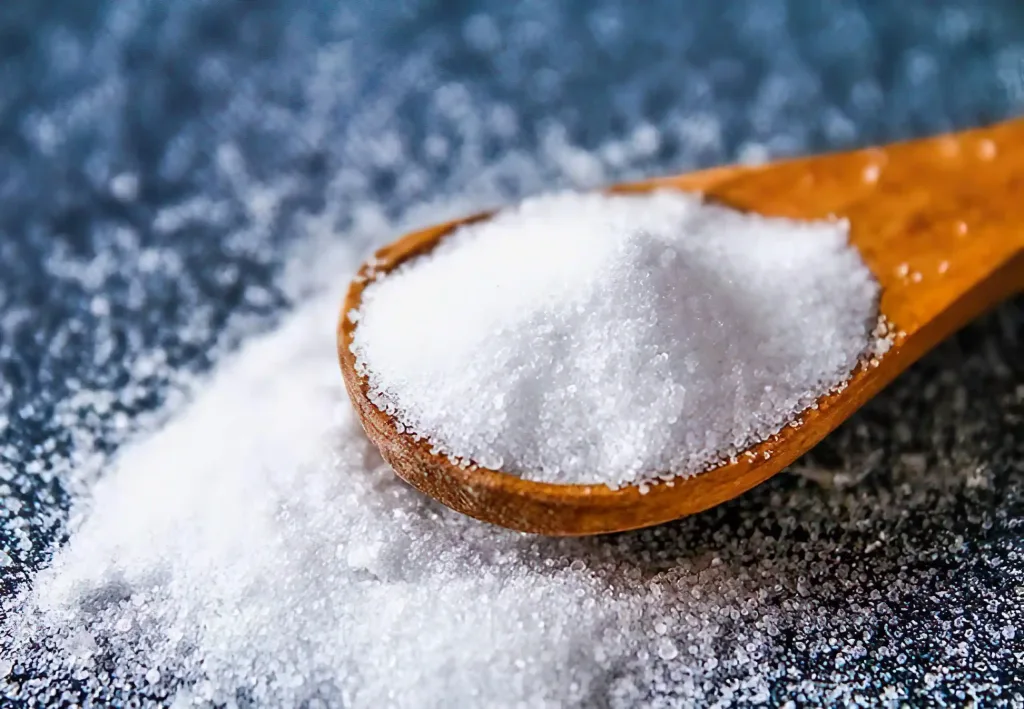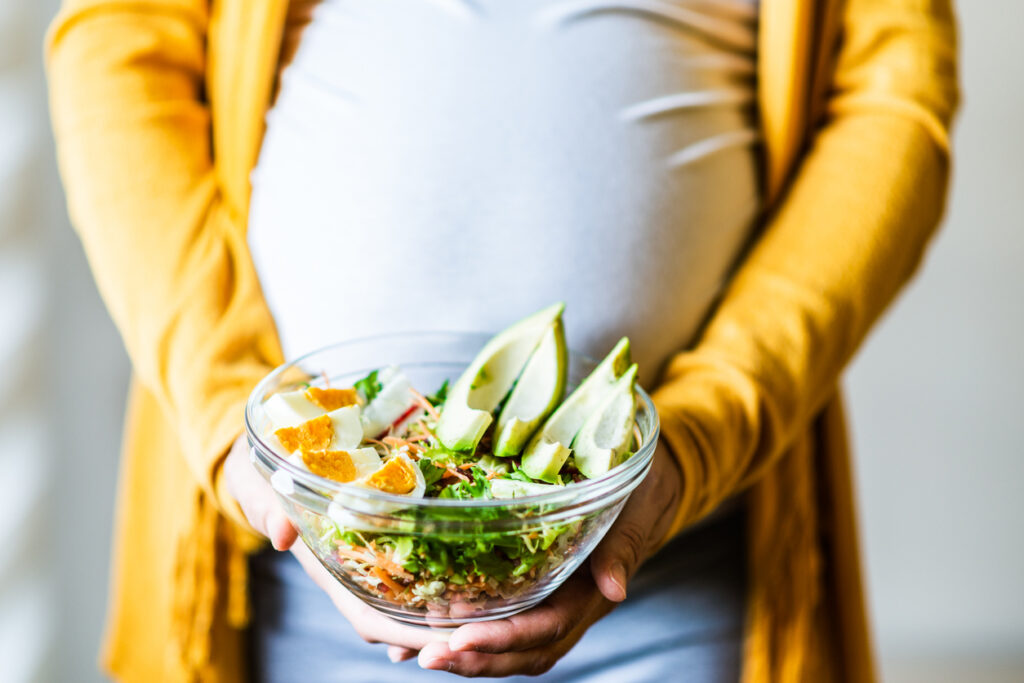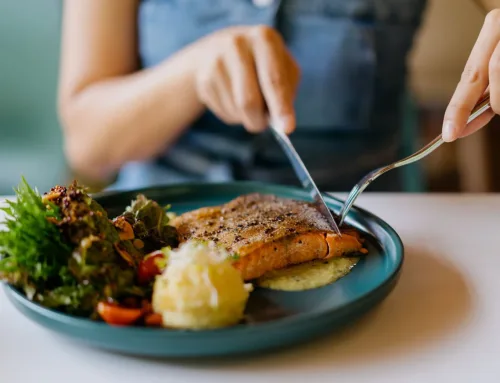Pregnancy is a unique journey characterized by a myriad of changes, one of which is the experience of cravings. Among the most frequently reported cravings is the desire for salt—a flavor that can be both comforting and puzzling.
This article discusses into the reasons behind salty food cravings during pregnancy, offers safe options to satisfy them, and discusses the potential risks associated with excessive salt intake. Additionally, it provides tips for managing these cravings while maintaining a balanced diet, ensuring that both you and your baby remain healthy and happy.
Understanding Pregnancy Cravings

Pregnancy cravings often present a whirlwind of unexpected desires for certain foods, prompting many pregnant women to seek out salty snacks such as chips, pickles, or salty fried foods. These cravings can stem from various factors, including hormonal changes, emotional eating, and cultural food practices.
Consequently, managing these cravings during this unique period is essential for maintaining health throughout pregnancy.
Causes and Common Cravings
Understanding the reasons behind salty food cravings during pregnancy can assist expectant mothers in managing their dietary restrictions while ensuring they maintain adequate hydration and nutrient intake. These cravings may arise from a variety of triggers, including hormonal changes, nutritional deficiencies, and even emotional factors, resulting in a distinct combination of food aversions and the intensity of cravings.
For many, the strength of these cravings may vary, highlighting how personal experiences can significantly shape dietary choices. Hydration is particularly important in addressing these cravings, as dehydration can sometimes mimic signals of hunger, especially for salty foods.
Pregnant women may find themselves desiring familiar treats like pickles or an occasional bag of chips, which often reflects their bodies’ need for sodium and essential nutrients. It is important to recognize that while cravings can complicate nutritional planning during this significant time, focusing on balanced meals that also satisfy these urges can enhance overall health and well-being.
Further reading: The Ultimate Healthy Pregnancy Diet Guide: From the First Trimester to Delivery
The Role of Salt in Pregnancy

Salt is an important component of a pregnancy diet, as it affects sodium intake and overall health during this crucial time. It is essential for pregnant women to maintain a well-balanced diet that incorporates an appropriate amount of salt to support electrolyte balance.
However, it is equally important to be aware of food safety and the potential risks linked to excessive salt consumption.
Why Do Pregnant Women Crave Salt?
Pregnant women often experience cravings for salt, which can arise from various factors associated with their unique maternal health and dietary preferences. These salty food cravings are influenced by physiological changes, emotional needs, and the psychology of cravings, creating a complex interplay between diet and well-being during pregnancy.
During this time, the body undergoes significant hormonal shifts that may lead to an increased requirement for sodium, particularly for those who are experiencing fluctuations in blood pressure or sodium levels. Additionally, emotional factors such as stress or anxiety can play a role in these cravings, often providing a sense of psychological comfort amidst the many changes that come with pregnancy.
If there is a deficiency in certain nutrients or electrolytes, the body may signal a desire for salty foods as a compensatory mechanism. By understanding these cravings better, individuals can make more informed dietary choices, opting for healthier, less processed salty alternatives that satisfy their needs without compromising their overall health.
Safe Options for Salty Food Cravings During Pregnancy
Finding safe options to satisfy salt cravings during pregnancy is essential for maintaining a balanced diet and ensuring good nutrition. Pregnant women can explore healthy sources of salt, such as natural flavors and culinary herbs, while effectively managing their cravings without compromising their dietary needs.
Healthy Sources of Salt

When considering healthy sources of salt, natural options, and culinary herbs offer savory flavors without the excessive sodium content. Pregnant women can integrate these alternatives into their meals to satisfy salty cravings while remaining compliant with dietary guidelines.
Incorporating substances like sea salt, which contains beneficial trace minerals, can be advantageous while still keeping sodium levels in check. Additionally, herbs such as rosemary, thyme, and oregano can enhance the taste of dishes without contributing to unwanted sodium, making them excellent choices for flavoring.
It is essential to carefully read food labels, as many processed foods often contain high levels of salt. Choosing low-sodium varieties of canned goods and pre-packaged meals can significantly help in managing overall sodium intake.
When planning meals, consider creating flavorful spice blends or marinades using these herbs and natural salts, offering a creative and health-conscious approach to cooking.
Further reading: Craving Spicy Food During Pregnancy? Here Are Some Dos and Don’ts
Foods to Avoid for Excessive Salt Intake
It is crucial for pregnant women to avoid excessive salt intake, as certain processed foods can pose health risks and contribute to an increased risk of obesity.
By being informed about what to avoid, expectant mothers can manage their cravings more effectively while ensuring they maintain a safe and nutritious diet throughout their pregnancy.
Potential Risks and Alternatives
The potential risks associated with excessive salt intake during pregnancy can have significant implications for both maternal and fetal development. Understanding these risks encourages pregnant women to make healthier food choices while exploring options that allow for safe indulgence without jeopardizing their health.
High sodium consumption during this crucial period can lead to complications such as hypertension, increased water retention, and even preeclampsia, all of which can pose serious threats to the health of both the mother and the developing fetus. A diet high in sodium may also result in excess fluid accumulation, which could restrict blood flow and oxygen to the baby.
For those pregnant women who find themselves craving salty foods, there are healthier alternatives to consider. Using herbs and spices to enhance flavor or opting for fresh vegetables and whole grains that naturally contain less sodium can be effective strategies. By making thoughtful dietary choices, they can satisfy their cravings while ensuring a safer and more enjoyable pregnancy journey.
Managing Salt Cravings During Pregnancy

Managing salt cravings during pregnancy can indeed be a challenge. However, with mindful eating and thoughtful meal planning, pregnant women can discover effective strategies to handle changes in their appetite.
By implementing techniques to support their cravings and emphasizing healthy eating, they can find relief from these cravings while still meeting their dietary needs.
Tips for Controlling Cravings and Maintaining a Balanced Diet
To effectively manage cravings while maintaining a balanced diet, pregnant women should consider various strategies that address their specific nutritional needs. These tips can assist in handling cravings while still enjoying diverse food options and discovering new healthy recipes to satisfy those salty cravings.
One practical method is meal planning. This approach enables expectant mothers to prepare nutritious meals in advance, ensuring that healthy options are readily available. By incorporating a variety of fruits, vegetables, whole grains, and lean proteins, meals can become more satisfying, helping to reduce the urge to snack on less healthy alternatives.
Additionally, experimenting with different ingredients can lead to the creation of wholesome recipes that not only satisfy cravings but also enhance overall nutrition. Staying hydrated is also crucial, as cravings are sometimes mistaken for thirst. By being mindful of food choices and maintaining balance, pregnant women can significantly improve their well-being and enjoy their meals without feeling deprived.
Frequently Asked Questions
What causes salty food cravings during pregnancy?
Salty food cravings during pregnancy are common and can be caused by hormonal changes, increased blood volume, and the body's need for extra nutrients.
Are there any safe options for satisfying salty food cravings during pregnancy?
Yes, there are plenty of safe options for satisfying your salty food cravings during pregnancy. You can try incorporating more fruits and vegetables with a naturally salty taste, such as seaweed, olives, and pickles. Low-sodium versions of your favorite snacks can also be a good option.
What are some salty foods that should be avoided during pregnancy?
Foods high in sodium, such as processed and packaged snacks, should be avoided or consumed in moderation during pregnancy. Excessive intake of sodium can lead to water retention and increase the risk of high blood pressure.
Can salty food cravings during pregnancy be a sign of a deficiency?
In some cases, salty food cravings during pregnancy can be a sign of a mineral deficiency, such as iron or zinc. It is important to consult with your healthcare provider to ensure your cravings are not a result of a nutrient deficiency.
How much sodium is safe to consume during pregnancy?
The American Heart Association recommends consuming no more than 2,300 milligrams of sodium per day. However, pregnant women may benefit from reducing their sodium intake to 1,500 milligrams per day to help prevent water retention and high blood pressure.




